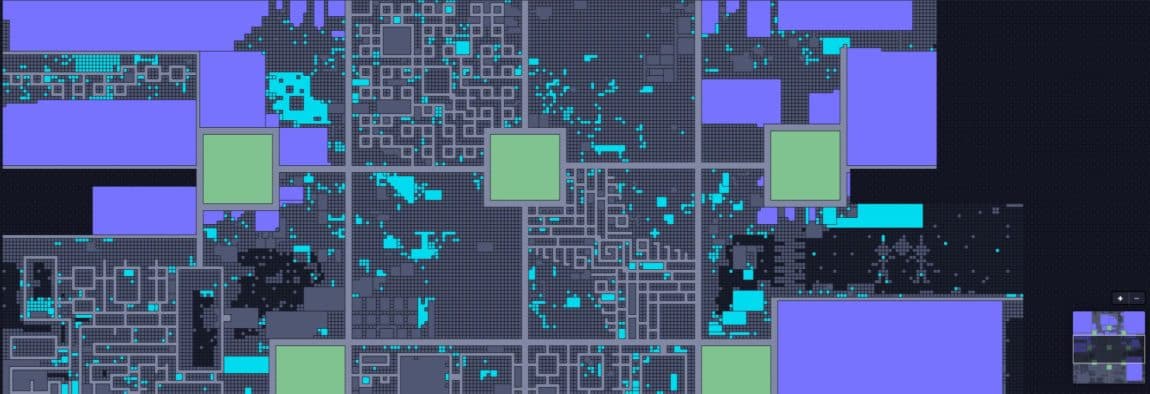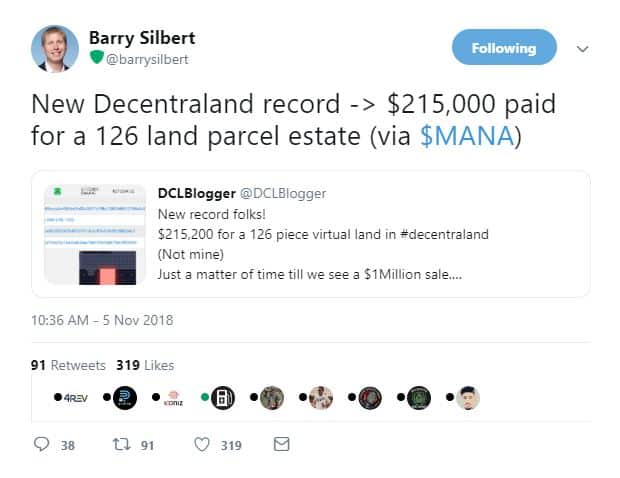You Can Now Use Crypto to Take out a Real Mortgage on Virtual Land

It’s not Thursday, but this story sure feels like a throwback to headlines from last year’s cryptocurrency mania: crypto enthusiasts have begun using their tokens to take out real mortgages on virtual land.
Decentraland & Ripio Partner for Crypto Mortgage Service
This phenomenon has been made possible through a partnership between Decentraland, an Ethereum-based virtual reality platform, and Ripio Credit Network (RCN), a borderless peer-to-peer cryptocurrency lending network.
Decentraland is a decentralized application (dApp) that hopes to provide the infrastructure for a 3D-virtual world. That world, which has finite space, has been divided into 10m² parcels, each of which is represented by a non-fungible Ethereum token called LAND that can be bought and sold in the platform’s marketplace.

Developers can build games and other applications on their parcels using the Decentraland SDK, and, once the platform receives a full release, users will be able to use VR to explore the virtual world and interact with these applications.
Decentraland is still several major releases away from fulfilling this goal, but developers and speculators have nevertheless been sinking serious cash into virtual LAND. Just this week, one user set a record by paying $215,000 for a 126-parcel estate.
Now, thanks to Decentraland’s partnership with Ripio, users will not necessarily have to plunk down all of that cash — specifically MANA, the platform’s native Ethereum token — at once.
“Decentraland is dedicated to making the exciting new world of virtual reality decentralized—ruled by open standards as opposed to one central organization. This partnership will help us fully commit to that mission, as the buying and selling of land—the basis of all the exciting things our users can create in VR—will not just be decentralized, but done on the leading global blockchain-based credit network,” stated Decentraland CEO Ariel Meilich.
RCN CEO Sebastian Serrano added that the decision to support LAND mortgages was an “exciting new horizon for Ripio” and noted that it serves as an example of how Ethereum dApps can work together to improve their services.
“The partnership between RCN and Decentraland…is one of the first examples that highlights how different smart contracts-based applications can work together,” said Serrano. “At RCN we drive our efforts to connect lenders and borrowers and offer them. Doing so in virtual reality is an exciting new horizon.”
Applying for a Virtual Mortgage

To register for a mortgage in Decentraland, prospective “real” estate purchasers must complete a short application form and place a down payment of at least 10 percent of the market value of the property. The RCN dApp will then publish the loan request so that interest lenders can claim the mortgage; the request will remain live as long as the land parcel is for sale.
Once a lender claims a mortgage request, the platform will create a smart contract that locks the land parcel and transfers partial ownership to the purchaser, who can use the parcel as he or she sees fit throughout the duration of the mortgage and may claim full ownership from the smart contract upon repaying the loan. Borrowers can even establish an RCN credit rating by consistently paying off their mortgages on time, likely enabling them to receive more favorable interest rates in the future.
However, if the borrower fails to pay off the mortgage within seven days following its expiration date, the lender may request the mortgage back through the smart contract, which will move the borrower into default and transfer full ownership of the parcel to the lender.
But, while select LAND purchases have begun to rival the cost of actual real estate, buyers are unlikely to find the borrower-friendly interest rates or 30-year payoff dates available from traditional mortgage providers. At present, active RCN loans feature annual interest rates ranging from 28 percent all the way up to 78 percent, with most lenders opting to fulfill loan requests with payoff dates denominated in months — not years.
Featured Image from Shutterstock
